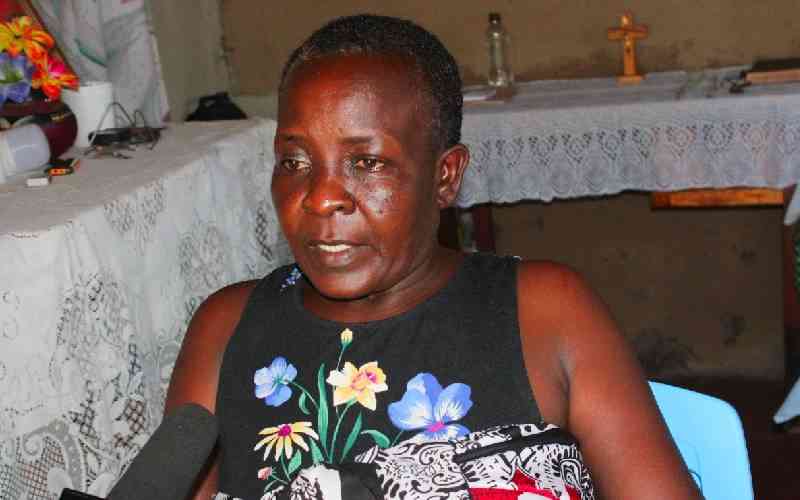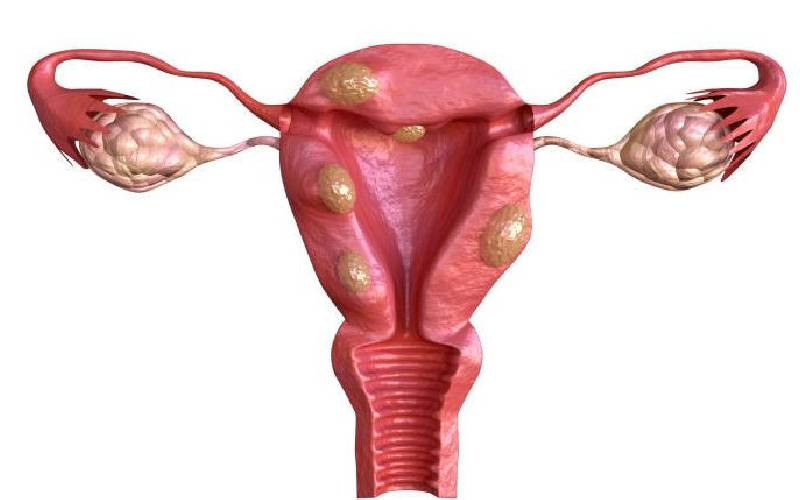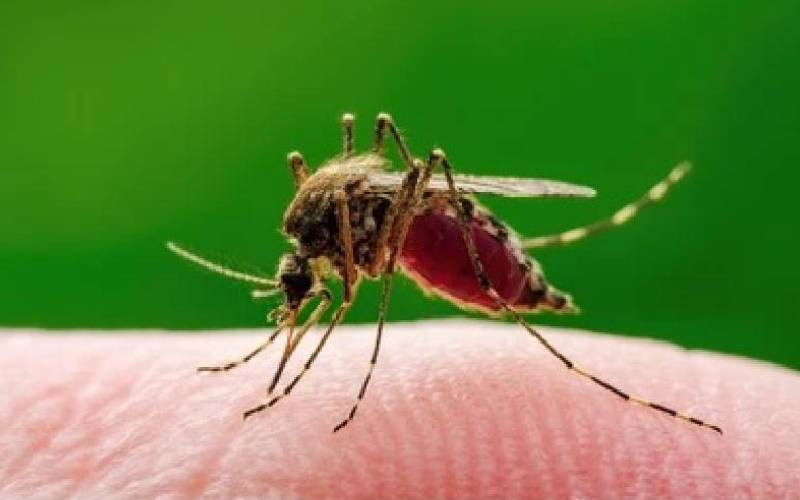
A heart attack, also known as a myocardial infarction, happens when the flow of blood that brings oxygen to a part of your heart muscle suddenly becomes blocked, according to the US US National Institutes of Health.
Think of your body's heart as its engine and its blood vessels as its fuel supply. A heart attack occurs when these fuel lines get clogged with cholesterol, causing the engine to sputter.
"There may be other causes, more rare causes. Of course, the most common, the one more people will be more conversant with, is when the blood vessels, which we call the coronaries, are blocked by the accumulation of cholesterol," says Dr Hazel Mburu, a cardiologist, practising in Eldoret.
A heart attack, however, does not necessarily mean that your heart slammed on the brakes. "Some people think that when your heart just stops, that's a heart attack," Dr Mburu clarifies, "But that heart attack can then lead to the heart suddenly stopping, depending on what mass or what percentage of the heart is affected by that blockage," she adds.
Dr Mburu challenges yet another myth -- that heart attacks only affect the elderly. She points out a demographic shift that is impacting people in their 30s and 40s, particularly those with risk factors like obesity, smoking, alcohol use, high cholesterol, diabetes, and hypertension.
"The other causes are rare," she points out, "A healthy 30-year-old can get a clot in the heart vessels, maybe because of an underlying disease, like lupus, or other diseases that increase clotting risk. But those are very rare."
Identifying the symptoms
"Somebody can ask, 'Is it like you're being pierced with a knife?' The typical pain for a heart attack is crushing; the patient feels like something is sitting on them or is crushing their chest," Dr Mburu says adding that the feeling is like a chest-hugging sumo wrestler that sometimes sends pain signals to your left shoulder, neck, jaw, and back.
- Baba's last minutes: Blood clot linked to fatal cardiac arrest
- Why men need more exercise than women to see the same heart benefits
- How doctors closed rare heart defect, giving Kenyan woman second chance
- The hole no one saw: Inside life-saving heart surgery
Keep Reading
"Usually in the centre around your chest bone, which we call the sternum. The pain radiates; and moves towards the left side," Dr Mburu explains.
She further explains that these symptoms are often experienced during physical activities due to increased oxygen demands on the heart.
"The person has a narrowed vessel because of the accumulation of cholesterol over some time, so the blood vessel is enough to supply blood to that part of the heart. But the moment you are doing something strenuous, like exercising, you're increasing the requirements for oxygen for your heart," she adds.
She also discusses the link between heart attacks and strokes, both of which can be attributed to cholesterol-related arterial narrowing and structural heart issues. Strokes are defined as a reduction of blood flow to the brain.
What to do when someone is having a heart attack
When it comes to first aid, Dr Mburu emphasises the importance of immediate action and advises against trying unverified remedies.
"For management, it wouldn't make sense to say that you press on somebody's elbow or someone's neck or something like that; that wouldn't work," she stresses. "That would be wasting precious time when this person could maybe be transferred to a place where they can get help."
"So if somebody's presenting with typical chest pain that looks like they're having a heart attack, or they present with sudden weakness, somebody who was okay, and then suddenly you just find they're weak on one side, their speech is slurred," Dr Mburu guides.
"The best thing is, at the onset of weakness, take that person to the hospital, period. Don't say, 'Let's wait for tomorrow'. Rush them to the hospital, because we have a window of time, like within hours, where it can completely be reversed. The sooner they get to the hospital, the higher the chances of recovery," Dr Mburu says.
 The Standard Group Plc is a multi-media organization with investments in media
platforms spanning newspaper print
operations, television, radio broadcasting, digital and online services. The
Standard Group is recognized as a
leading multi-media house in Kenya with a key influence in matters of national
and international interest.
The Standard Group Plc is a multi-media organization with investments in media
platforms spanning newspaper print
operations, television, radio broadcasting, digital and online services. The
Standard Group is recognized as a
leading multi-media house in Kenya with a key influence in matters of national
and international interest.











